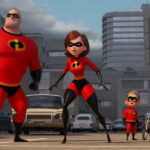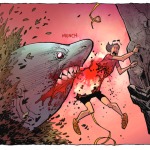AVENGERS: INFINITY WAR (2018)
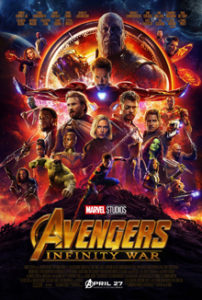 Starring: Robert Downey Jr., Chris Hemsworth, Mark Ruffalo, Chris Evans, Scarlett Johansson, Don Cheadle, Benedict Cumberbatch, Tom Holland, Chadwick Boseman, Zoe Saldana, Karen Gillan, Tom Hiddleston, Paul Bettany, Elizabeth Olsen, Anthony Mackie, Sebastian Stan, Idris Elba, Danai Gurira, Peter Dinklage, Pom Klementieff, Dave Bautista, Vin Diesel, Bradley Cooper, Josh Brolin, Chris Pratt
Starring: Robert Downey Jr., Chris Hemsworth, Mark Ruffalo, Chris Evans, Scarlett Johansson, Don Cheadle, Benedict Cumberbatch, Tom Holland, Chadwick Boseman, Zoe Saldana, Karen Gillan, Tom Hiddleston, Paul Bettany, Elizabeth Olsen, Anthony Mackie, Sebastian Stan, Idris Elba, Danai Gurira, Peter Dinklage, Pom Klementieff, Dave Bautista, Vin Diesel, Bradley Cooper, Josh Brolin, Chris Pratt
Writers: Christopher Markus, Stephen McFeely
Directors: Anthony Russo, Joe Russo
Studio: Marvel
To be honest, It feels weird to do a retro review for a movie that just came out a year ago. After watching Avengers: Infinity War several times throughout the year, it is important to bring an angle outside of that initial awe of a first theater viewing. It is also a good chance to apply some of the theories that have been floating for the last year and see where they might be hinted.
Avengers: Infinity War had the task of taking the last 10 years and 20-some movies and beginning the wrap-up process that is Phase Three of the MCU. It was a task that was, from the beginning, never going to be easy. Early on in the process, it was announced that the final movie was going to be broken up into two parts. As more information came out, it was revealed that the second half of the movie would not be Infinity War Part 2, but instead, would have its own title. Each step along the way, news and rumors swirled as to how the Russo brothers were going to be able to bring this expanded universe together, and how every character would get enough screen time.
One of the first issues that Infinity War had to deal with was how to bring these characters all together. Each of them had been existing in their own movies for years. While some had worked together in team movies or made cameos in individual movies, they each had their own voice and history that had to be addressed.
The movie starts on an ominous note. The audience is thrust into an already heavily damaged ship that was once holding Thor and the Asgardians who had escaped at the end of Thor: Ragnarök. The mighty Thor has already been beaten down. Loki seems to have once again double-crossed his brother to save his hide. Loki, in the end, was trying to distract Thanos while the Hulk came in to save the day. While putting up a valiant fight, the powerhouse team of Thor, Loki, and the Hulk were unsuccessful in their attempt to stop the Mad Titan. Immediately, Thanos is established as an opponent that is stronger than anyone the Avengers, Guardians, or any other hero in the universe has faced before while laying out his plans.
To drive home the idea of exactly how strong Thanos is, the Russos used Thor and Hulk as the messengers of the impending death and destruction that was coming. To bring a team together that had been fractured and, in some cases, in hiding since Captain America: Civil War, there had to be something that was dangerous enough that they could put aside their differences. The Hulk’s fear, not Banner’s, serves as that touch point which they can all look upon as a common rallying point.
While establishing exactly how strong and dangerous Thanos is, it was important for the movie to continue to give hope to heroes. Throughout Infinity War, the script is written in a way to make it believable at any time that the heroes may be able to stop the Mad Titan’s plan before there was a point of no return. The script is written with such hope that even after multiple viewings, as the Avengers and other heroes make their various comebacks, you think that it might be the time they win. However, just like the first time, fate is not on the side of the heroes. Each time the anguish that Thor feels as Thanos whispers, “You should have gone for the head,” is just as potent.
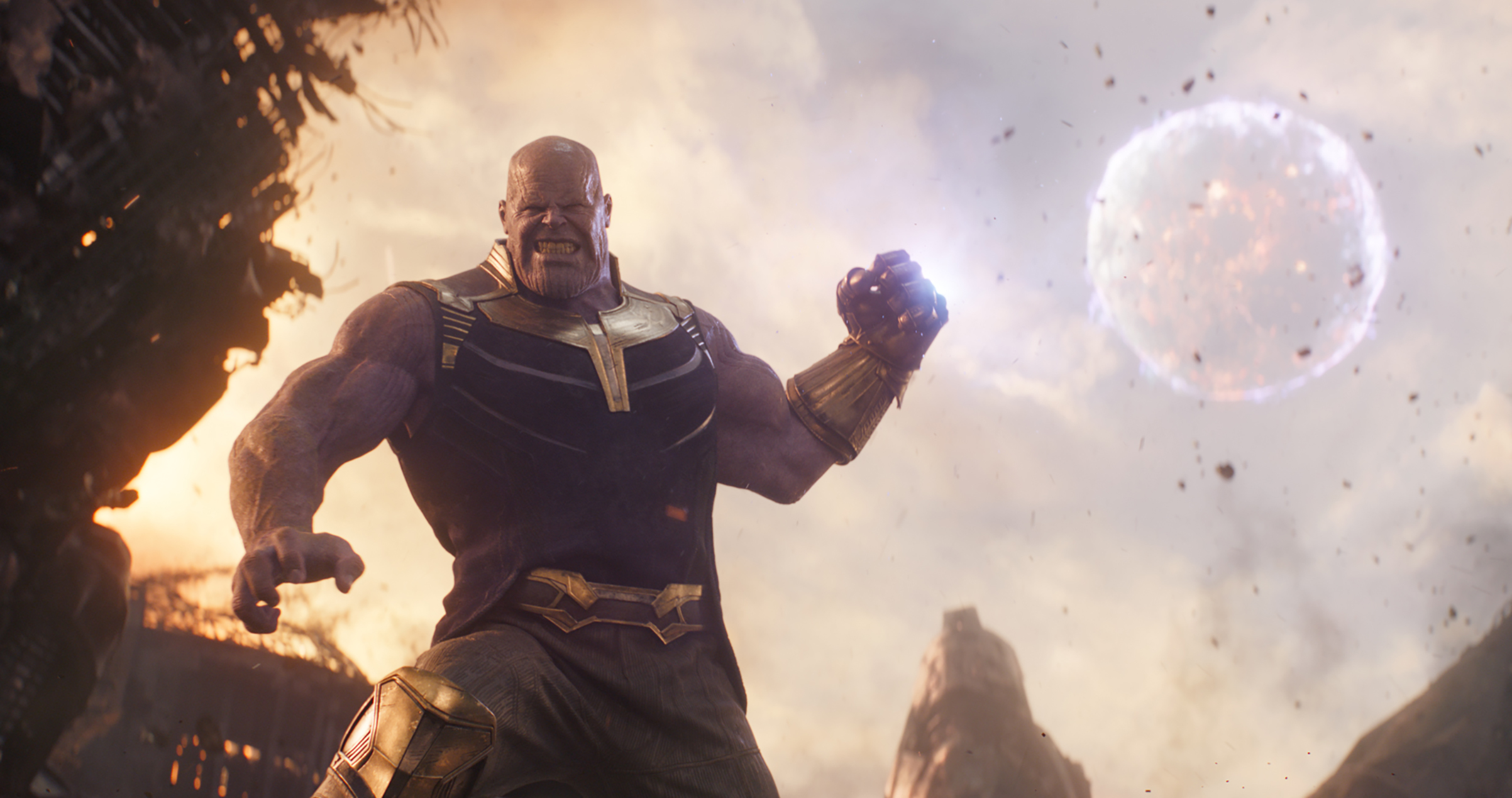
One of the biggest complaints about the MCU has always been that the villains are often one-dimensional and lacking development. While that is true looking back at many of the other characters, Thanos is one of the true exceptions. Thanos has a reason for what he is doing, and it is not just to see the world burn. He has visited planets, and through those travels has established that the universe would be a much better place with fewer people.
While he had been willing to use violence and murder in the past to reach his goals, Thanos has learned that using the Infinity Stones could help him reach his goals much faster. In the end to reach those goals, he had to sacrifice one of the only things that he truly cared about: his adoptive daughter. To drive home the point that Thanos only wanted to see his idea of balance within the universe, once he has accomplished his goal, we do not see Thanos celebrating.
Instead, we see Thanos making his was back home, looking upon the world that he has created. His face showing discomfort while he falls into his seat, telling the young Gamora he sacrificed everything. It is a point that you are rarely going to see where the villain gets what he wants while wondering internally if it was worth it. It is a point that will make Thanos one of the greatest villains of all time within the Superhero genre.
While having the villain win is not unique to Infinity War, what is unique is the lack of hope that the heroes will easily somehow come back from this. Empire Strikes Back is probably one of the most famous movies where the heroes are left on their heels as the credits start to roll. But even then, you had a sense of hope as Luke is pulled into the Falcon and the heroes fly off to fight another day. In Infinity War, the feeling can best be described by Captain America, sitting on the ground, with the simple utterance of “Oh God” as other heroes stumble around in shock. As the credits roll, all hope seems lost. The question becomes how the heroes come back from this. There is only one way to find out. To see Avengers: Endgame for the end of this 10-year, 22-movie epic run.

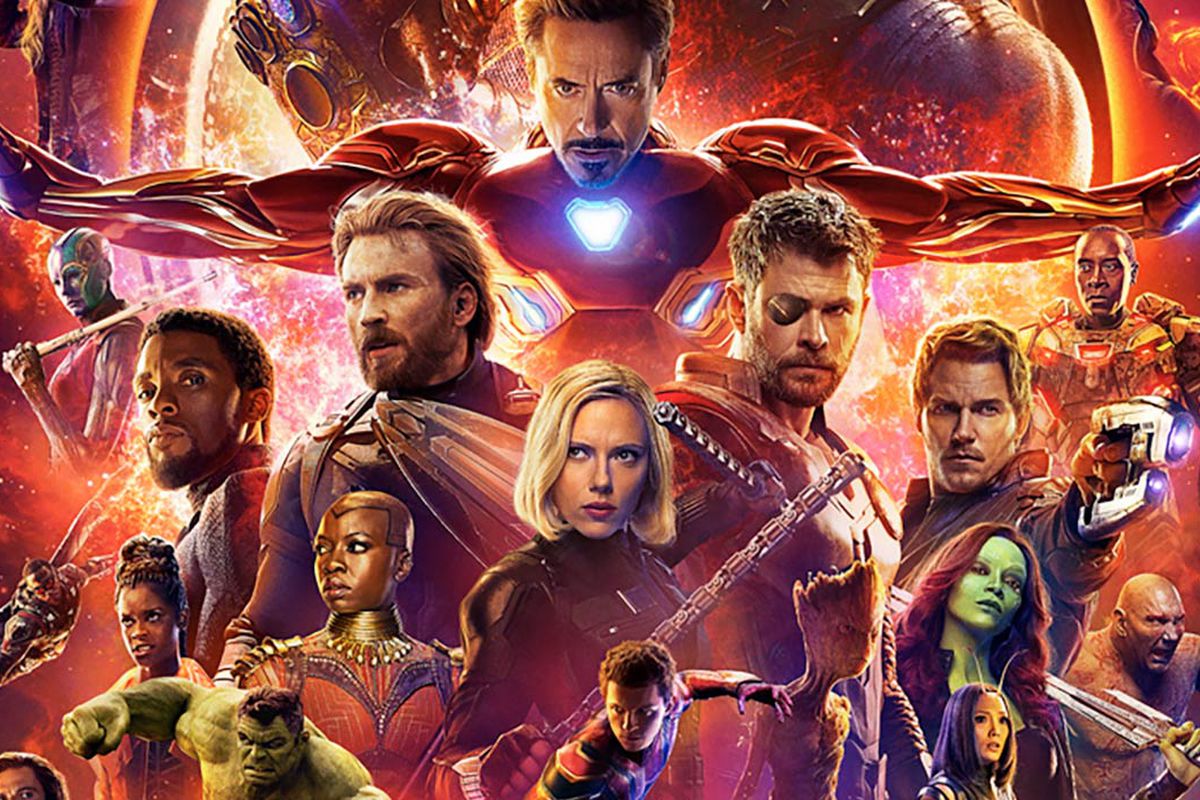
![[LIST] PORTAL FANTASY FAVORITES TO TAKE YOU INTO A NEW WORLD](https://geekd-out.com/wp-content/uploads/2021/03/PortalFantasyHeader-150x150.png)
